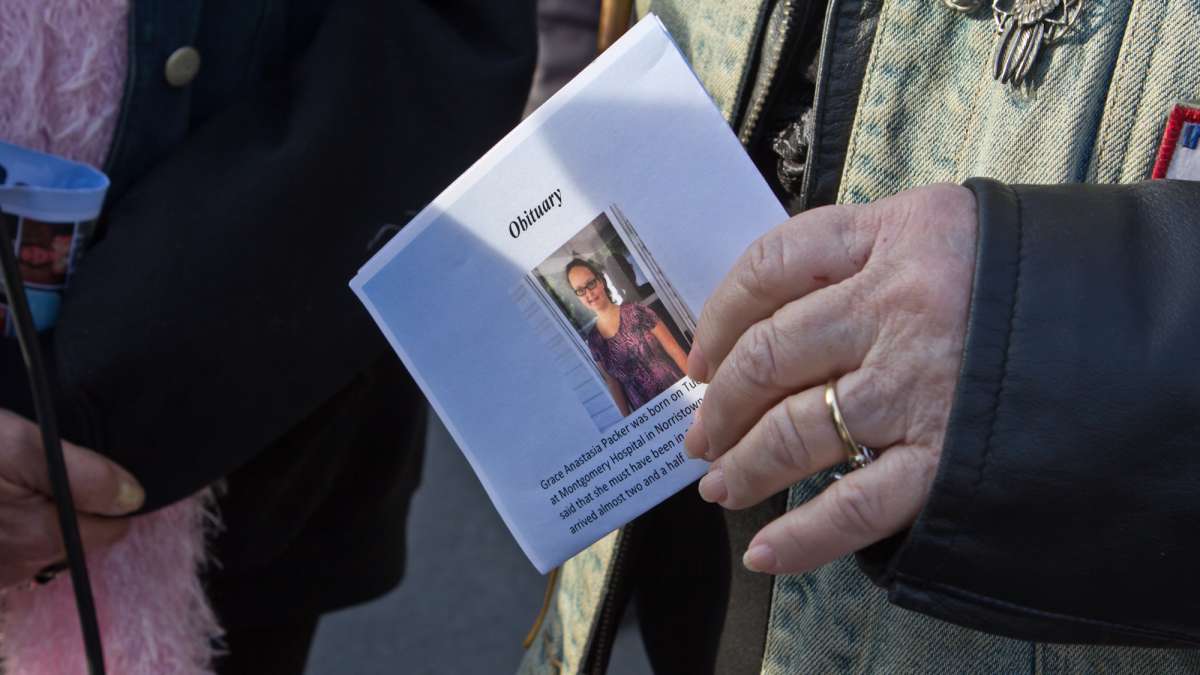Grace Packer case raises questions about 2-year-old Pennsylvania child abuse law

A memorial service for Grace Packer was held at New Life Presbyterian Church in Glenside. (Kimberly Paynter/WHYY)
It’s been a bit more than two years since Pennsylvania created a new law to protect kids from child abuse. Experts say the law is a good step, but perpetrators can deftly avoid getting caught.
It’s been a bit more than two years since Pennsylvania created a new law to protect kids from child abuse.
The law requires background checks for volunteers who work with kids. It also stipulates regular training for “mandated reporters” — people who under law are required to report suspected abuse.
The alleged rape and murder of 14-year-old Grace Packer — and the arrest of her adoptivemother, who used to be a child welfare worker — is prompting questions about how much a law can do to prevent abuse.
Experts say Pennsylvania’s law is a good step, but perpetrators can deftly avoid getting caught.
“If you haven’t been caught already, you’re not going to be in the system,” said Diane Vines, a program coordinator at the Child Trauma Academy in Houston.
She says abusers often hurt kids who aren’t receiving the typical love and support other kids get. They pick kids who they think no one would believe.
“By the time these people get caught, they’ve abused quite a few kids.”
In Pennsylvania, under the expanded law, mandated reporters have to go through periodic trainings on recognizing the signs of abuse. Vines says those trainings make a difference, because they replace a culture of silence with education.
“I’ve done trainings where I’m talking to a group of grownups, and somebody will come out later and say, ‘I’m thinking about my niece,’ or ‘That happened to me when I was a kid.’ And they hadn’t told anyone before.”
Vines says kids can show signs of sexual abuse when their grades drop suddenly, they become less compliant, or they know too much about sex for their age. Of course, these signs can also be chalked up to other problems as well, further confusing the issue.
“It’s really not that specific. It could be caused by other types of things. That’s what makes it so difficult to diagnose,” said Dr. Pat Bruno, medical director of the Children’s Advocacy Center of Janet Weis Children’s Hospital in central Pennsylvania.
But he says there are things caring adults, and especially adults who work with kids, can do.
“If somebody tells you something like that, you need to report it,” he said.
Diane Vines agrees. Beyond looking out for strange behavior, she says adults can empower kids to speak up.
“Send and live the message that your body belongs to you, and nobody should be touching it without your permission,” she said.
The more people willing to speak up, the less likely it is kids will get abused repeatedly, but it’s hard even for the updated law to prevent it completely.
WHYY is your source for fact-based, in-depth journalism and information. As a nonprofit organization, we rely on financial support from readers like you. Please give today.

